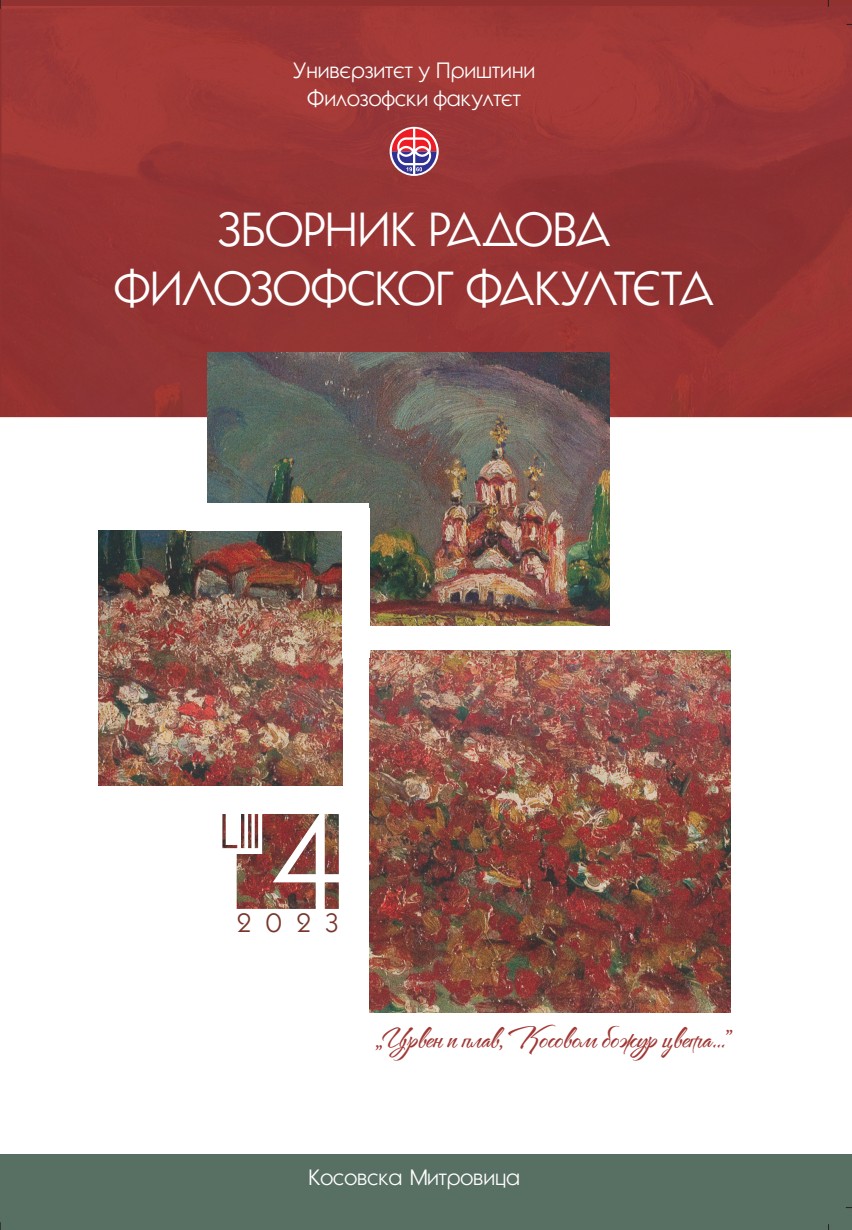Поетика смрти у песништву Бранка Радичевића
Poetics of Death in the Poetry of Branko Radičević
Author(s): Jasmina P. KneževićSubject(s): Serbian Literature
Published by: Филозофски факултет, Универзитет у Приштини
Keywords: romanticism; Branko Radičević; poetics; death; topos; heroic death; dead loved one.
Summary/Abstract: The poetry of Branko Radičević is filled with both lyrics honoring the joy of life and contemplations on death. Contrary to Jovan Skerlić’s belief, the notion of death will not only serve as a marker in the early works of Radičević but will persist throughout many of his different phases. In addition to its constant presence, the idea of transience and death will undergo changes in characteristics and tone. Simultaneously, the implication with which it is expressed will evolve. The concept of death in his work matures from the glorification of a heroic death in battle, which, in the eyes of romanticists, was more respected than a shameful death in a hospital bed. This evolution continues with the demolition of the same idea, a result of contemplating the true meaning of heroic death. Ultimately, it leads to lamenting the innocence of transience and death that awaits us all.According to Dušan Ivanić, one of the most recurring themes in Serbian Romanticism is the topos of heroic death, commonly noted in the poetry of Branko Radičević. This concept of the ideal ‘beautiful death’ dates back to the Middle Ages when the idea of death served in favor of ideologies and the elite. Igor Borozan notes that a subsequent interpretation of death emerged during Romanticism (Borozan, 2006, p. 895). Research shows that the topos of heroic death will not only be deconstructed in the poetry of Branko Radičević, but also the mere meaning and expediency of war will be dismantled. This confirms Igor Borozan’s thesis on the ‘beautiful death’ as an ideological construct of the country and the family (Borozan, 2006, p. 897). Apart from the idealistic heroic death, Radičević also presents death as an eternal human trauma in his poetry. This is related to ‘Cemetery Poetry’, which was popular among Serbian poets, including Branko Radičević, in the first half of the 19th century. The trauma of dying manifests most intensely through the poetics of space, as dying in foreignness is equally as mournful as dying in a hospital bed. Furthermore, Slobodan Vladušić studied in detail the topos of the dead loved one in the poetry of Branko Radičević.As Dušan Ivanić notes in his research, Radičević connects death in his poetry with elements such as water. Similarly, it is often hinted at, induced by, or followed by sound and auditory sensations.
Journal: Зборник радова Филозофског факултета у Приштини
- Issue Year: 53/2023
- Issue No: 4
- Page Range: 203-221
- Page Count: 19
- Language: Serbian

